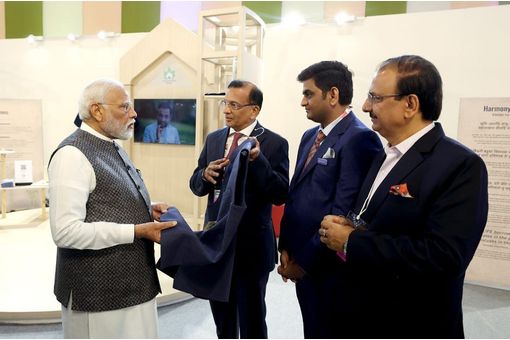Four US retailers agree to pay fine on FTC charges
Macy’s allegedly advertised and sold retail products labeled as bamboo, using the terms “bamboo” and “bamboo fiber” on textile labels. One product description for the “2(x)ist Contour Campus Pouch Brief,” for example, stated that it offered, “plenty of cool comfort and support . . . crafted in a cotton-bamboo blend for unbeatable performance.”
Sears allegedly claimed that some sheet sets sold in its stores and on its websites were made of “Pure Fiber 100% Bamboo.” Sears also sold a “Ty Pennington Style Bamboo Sheet Set,” which it claimed was made of “55% Bamboo/45% Cotton.”
The proposed orders settling the FTC’s charges are identical, aside from the civil penalties each company has agreed to pay. The orders prohibit the companies from violating the FTC’s Textile Act and Rules by failing to properly identify the fiber content when labeling and advertising the “bamboo” textiles they sell. This includes any products marketed or sold as made of bamboo or bamboo fiber, as well as products marketed as anti-microbial, anti-bacterial, or anti-fungal.
The settlement orders allow the companies to obtain “good faith” guarantees that a product was not mislabeled before it was sold. This good faith provision will not apply, however, if the companies should have known that a product is mislabeled.
In addition, consistent with a new Enforcement Policy Statement announced today, the orders clarify that when the companies cannot obtain a good faith guaranty because the products are imported directly from a foreign supplier, they will only be liable if they knew, or should have known, of the violation and did not modify or embellish the claims the supplier provided or market the product as a private-label product.
Finally, in addition to imposing the civil penalties, the orders contain record-keeping and reporting provisions to ensure the companies’ compliance with their terms.
Information for Businesses
The FTC has a publication designed to help businesses selling clothing and textile products that are purportedly made from bamboo to comply with the Textile Act and Rules and in marketing their products in ways that are truthful and non-deceptive. “Avoid Bamboo-zling Your Buyers,” provides useful information on how to correctly label and advertise textiles that are rayon made from bamboo.
The Commission votes to approve filing the complaints against Amazon, Macy’s, and Sears, and refer them to the Department of Justice, which were taken when Commissioner William Kovacic was at the FTC, were each 4-1, with Commissioner J. Thomas Rosch voting no. The vote to approve filing the complaint against Leon Max and refer it to the Department of Justice was 5-0.
































-Ltd..jpg?tr=w-120,h-60,c-at_max,cm-pad_resize,bg-ffffff)





.jpg?tr=w-120,h-60,c-at_max,cm-pad_resize,bg-ffffff)
.jpg?tr=w-120,h-60,c-at_max,cm-pad_resize,bg-ffffff)






